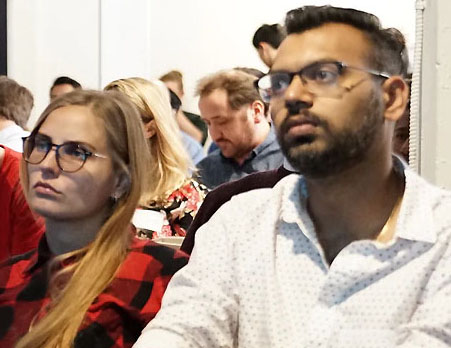“The great ambition should be to excel all others engaged in the same occupation,” said P.T. Barnum, the man who founded “The Greatest Show On Earth,” which ultimately became the Ringling Brothers and Barnum & Bailey Circus. Phineas Taylor Barnum showed the trademarks of an entrepreneurial spirit from a very young age and excelled at finding money.
Personally, I believe his primary talent was in engagement. He knew how to draw a crowd and hold their attention. Granted, he was involved in production well before digital consoles and line arrays became standard issue, but the goal of drawing a crowd and holding their attention remains the same.
Why does that matter to us?
When it comes to live event production, it’s my view that the responsibility of audience engagement falls to both the artist and production team. In general terms, the artist has a vision for a show and the tech crew makes it happen. Every aspect of the production affects the level of engagement for each person in the audience.
The tech team can do no more than make sure everything goes according to plan and give the artist as much support as possible. However, I’ve never found a functional “Talent Boost” knob on any console, digital or analog. (However, there does seem to be a “Suck” function somewhere that operates as a side-chain plugin. It’s usually triggered by a poorly rehearsed set and/or an overconfident artist.)
Many moons ago, I spent some time with an aspiring entertainer with a hitch in his giddy up. He felt that the audience had failed him with an unjustifiably poor response to a performance. In laymen’s terms, he was complaining because he received the exact amount of applause he earned.
I’m pretty sure there was none. Maybe someone dropped a plate at the right moment. That might have a caused commotion that sounded like a clap or two. Anything except applause.
He knew his set. He had rehearsed and, to a certain extent, prepared for his time in the spotlight. The overall experience for his audience just wasn’t as (nearly) good as he had envisioned, and they responded accordingly. Madison Square Garden was not going to be a stop on this tour.
Mixing, managing productions, working with creative types… After a few years there aren’t a lot of surprises left for us in production. I’ve seen the best and the worst when it comes to people on stage vying for the response of the audience.
With this particular performer, he had a tendency to do his bit and then lose it a little when the crowd didn’t move with him. He couldn’t keep his head in the game after the curtain opened. There was no level of production that would have brought that set to life. It was like watching a turtle on the highway, fully aware of the inevitable.
I hold the perspective that the audience has absolutely zero responsibility to the performer. They made the effort to arrive and spent hard-earned money to be there. They have no say in the planning and execution of the show. They simply respond to whatever is put in front of them, and it often comes with high expectations.
There’s only so much we can do, but let’s not be the reason the audience leaves. Mix for the enjoyment of the audience. Build systems that sound gorgeous. Be professional to the clients as well as their “customers.” Whether it’s for a bar gig or a major tour, don’t let your part of the show be the one that drains the life from the rest.
A good show can be hindered by bad production and good production can boost weak performances. We can’t fix everything, but we can make sure we own our positions and watch for opportunities to improve.
Even though they don’t clap for us.















